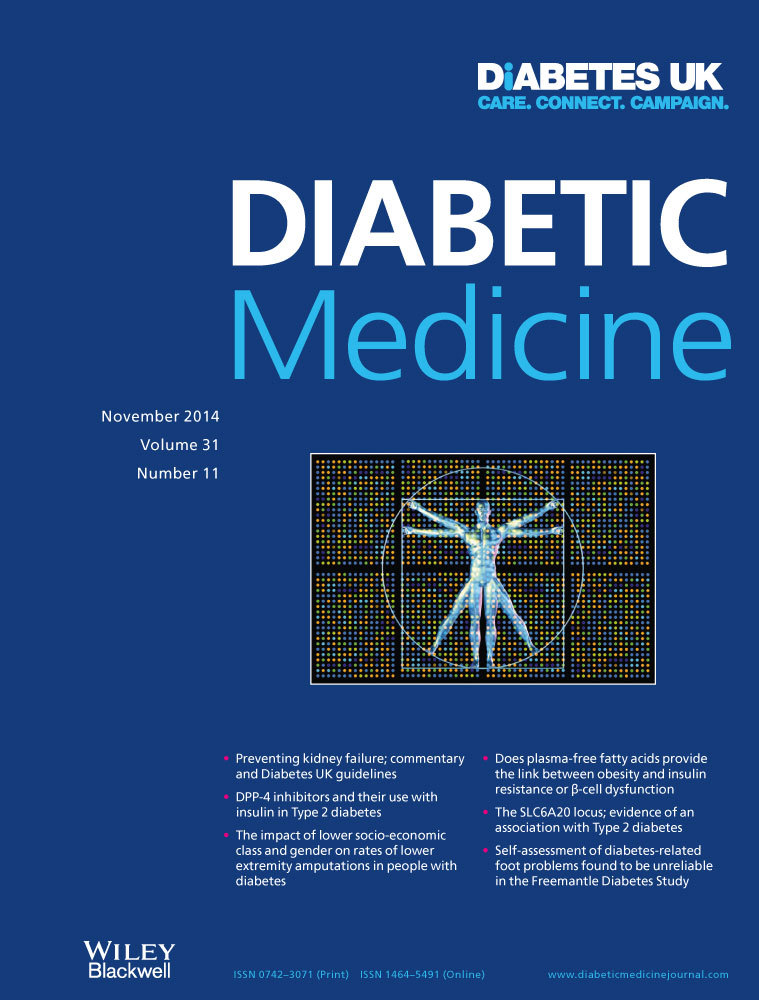Molecular and clinical characterization of glucokinase maturity-onset diabetes of the young (GCK-MODY) in Japanese patients
Abstract
Aims
To investigate the molecular and clinical characteristics of the largest series of Japanese patients with glucokinase maturity-onset diabetes of the young (GCK-MODY), and to find any features specific to Asian people.
Methods
We enrolled 78 Japanese patients with GCK-MODY from 41 families (55 probands diagnosed at the age of 0–14 years and their 23 adult family members). Mutations were identified by direct sequencing or multiplex ligation-dependent probe amplification of all exons of the GCK gene. Detailed clinical and laboratory data were collected on the probands using questionnaires, which were sent to the treating physicians. Data on current clinical status and HbA1c levels were also collected from adult patients.
Results
A total of 35 different mutations were identified, of which seven were novel. Fasting blood glucose and HbA1c levels of the probands were ≤9.3 mmol/l and ≤56 mmol/mol (7.3%), respectively, and there was considerable variation in their BMI percentiles (0.4–96.2). In total, 25% of the probands had elevated homeostatic assessment of insulin resistance values, and 58.3% of these had evidence of concomitant Type 2 diabetes in their family. The HbA1c levels for adults were slightly higher, up to 61 mmol/mol (7.8%). The incidence of microvascular complications was low. Out of these 78 people with GCK-MODY and 40 additional family members with hyperglycaemia whose genetic status was unknown, only one had diabetic nephropathy.
Conclusions
The molecular and clinical features of GCK-MODY in Japanese people are similar to those of other ethnic populations; however, making a diagnosis of GCK-MODY was more challenging in patients with signs of insulin resistance.




